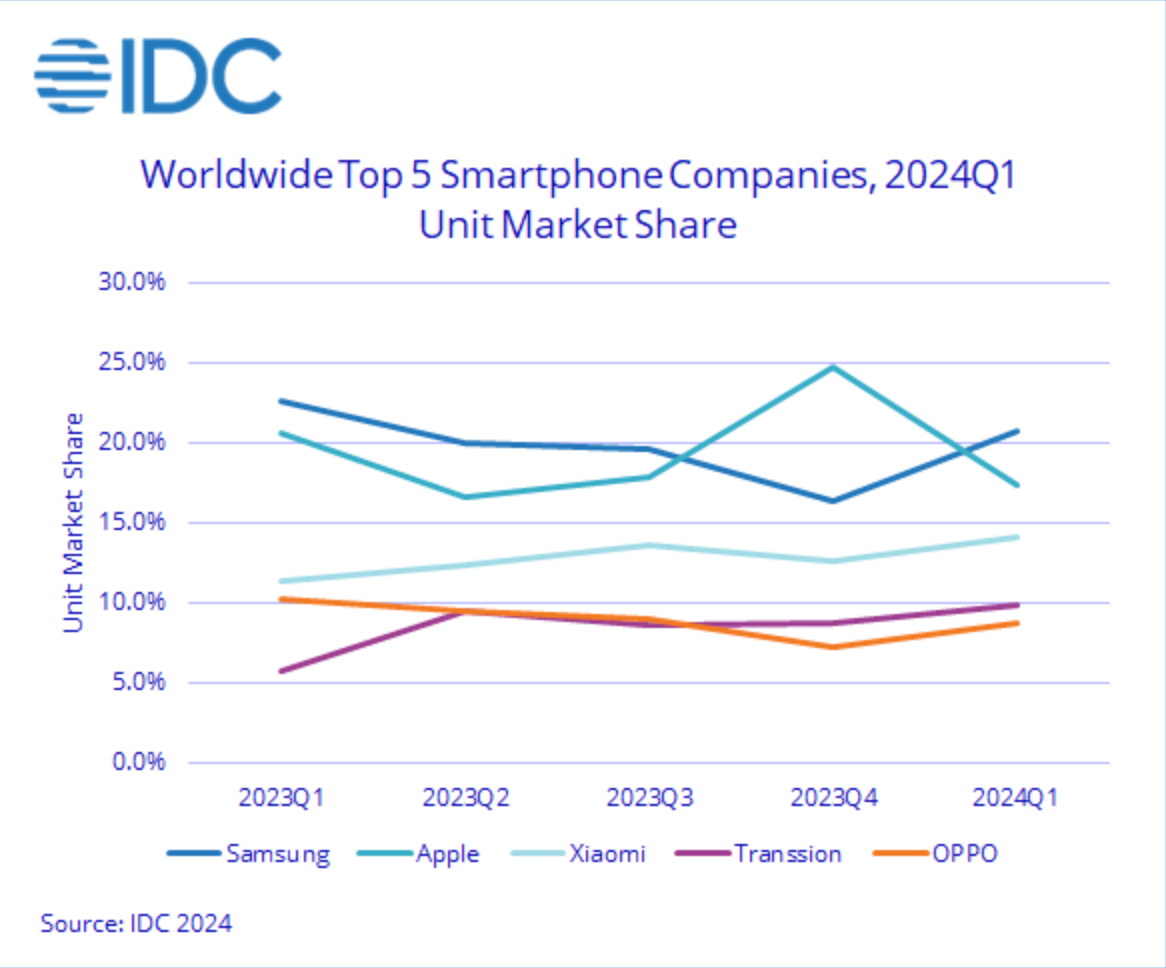Apple Dominates the Smartphone Market, Except in the Real World

Let's check in on the completely and utterly dominant iPhone:
Apple lost its lead in the global smartphone market at the start of 2024, with iPhone sales falling 10 per cent as lower-cost Chinese rivals such as Xiaomi experienced rapid growth.
Samsung regained its position as the world’s largest smartphone maker by volume in the first quarter, according to market researcher International Data Corporation, just three months after Apple claimed the top spot for the first time.
IDC estimated that global iPhone shipments declined 10 per cent to 50.1mn in the first three months of 2024 compared with the same period in 2023, giving it a 21 per cent market share.
Samsung, which launched its latest flagship Galaxy S24 phone in January, had a 23 per cent share after shipments fell just under 1 per cent year on year to 60.1mn.
That's weird, because according the the Department of Justice, Apple completely controls the smartphone market. In fact, in the U.S, Apple has an illegal monopoly in the space, the DoJ alleges. Sorry, that's specifically in the "premium" smartphone market. Which is just about the "niiicccceee" smartphone market and just below the "luxurious" smartphone market.
The DoJ must look at these numbers and think: that's what we want. A market where, um, Chinese phones are eating up Apple (and Samsung's) market share.
The market’s strongest growth came from two Chinese manufacturers, in the latest indication of Apple’s struggles in the world’s largest smartphone market.
Xiaomi sales surged 34 per cent to attain a 14 per cent market share, as the Beijing-based electronics group experienced a wave of publicity surrounding the debut of its electric car.
The world’s fastest-growing major smartphone maker is now Transsion, the Shenzhen-based manufacturer behind the Tecno, Itel and Infinix brands.
Transsion, whose affordable handsets have helped it become Africa’s top smartphone maker, increased shipments by 85 per cent to 25.2mn units, putting it in fourth place by volume ahead of its more established Chinese rival Oppo. Transsion is pushing into south-east Asia and attempting to move upmarket with a foldable phone.
Maybe the DoJ sees this and thinks: yes, China is doing this right, enabling real competition by... banning the use of iPhones for government employees, for example. Maybe the U.S. should do the same.
In all seriousness, there are a few interesting trends in this data. First and foremost, Apple faces some very real issues on the global stage. Apple has always struggled in emerging markets because of their price points, and Chinese firms like Transsion are happy to take advantage. Apple's hope, one assumes, is that as the markets mature, the allure of Apple products converts cheaper smartphone users into "premium" ones, as has been slowly happening in India.
But these Chinese players seem increasingly savvy, moving far more nimbly than Apple does with different types of form factors, such as foldables. And Xiaomi's use of their electric car to create a new type of halo effect is fascinating. And (sadly) not something Apple is going to be doing anytime soon!
You have to wonder if Apple might not take a page from their recent Walmart/MacBook Air playbook and partner with various players in emerging markets to sell older (and most importantly, cheaper) versions of the iPhone exclusively. There's some brand risk there, but again, using unique channels to do this seems smart.
While all we're going to hear in the coming weeks from Apple is "AI, AI, AI, AI, AI", they obviously need to protect the throne. The iPhone.


